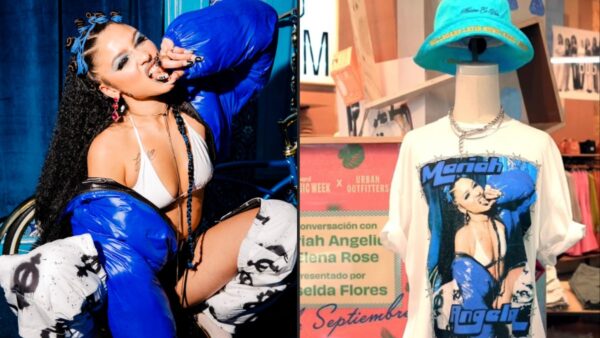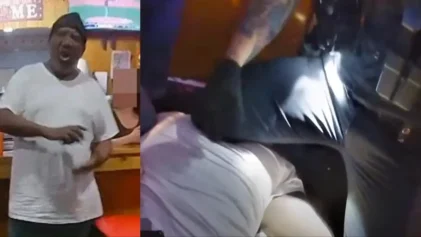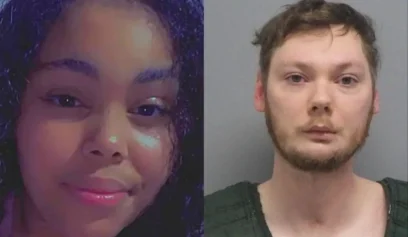A Los Angeles-based photographer is suing singer Mariah Angeliq, Penske Media and Urban Outfitters for copyright infringement after his photograph ended up on merchandise sold by the retailer and in campaign promotions.

Enso Law filed a lawsuit on behalf of Abdullah Webster in the United States District Court Central District of California, Western Division on April 26.
The lawsuit accuses Angeliq of failing to compensate Webster and his company, Hexlastudios, for a photograph he was asked to take of the 23-year-old reggaeton, trap and R&B singer. Webster agreed to take photographs of Angeliq for non-commercial use only back in 2021 with the understanding the pictures from the photo shoot could only be used on social media with the appropriate credit to Webster and Hexlastudios.
“Mariah did not compensate Webster for the photoshoot. Before, during, and after the photoshoot, Webster put Mariah on notice that all of the photographs taken belonged to his company, Hexlastudios and that she may only post photographs for non-commercial purposes on social media, so long as she attributed the work to him and Hexlastudios,” the lawsuit says.
The lawsuit stated that the “Taxi” singer sold one of the photographs to Urban Outfitters and Penske Media to be used to promote Angeliq’s music release and performances during Latin Music Week as well as to sell clothes for the retail store. The complaint also says that the photograph was used to drive traffic to Billboard Music’s website and Urban Outfitters’ website. The image was also printed on t-shirts sold at Urban Outfitters.
Webster hired attorneys David Welch and Marcus Whittemore from Enso Law to represent him after the photograph was used commercially. The photographer said that Angeliq was fully aware that the copy of the photograph he gave her one week following the photo shoot was strictly for non-commercial use.
“A lot of people in this business understand, like, if I shoot you, it’s like, okay, to post on Instagram,” said Webster in a statement provided to Atlanta Black Star. “Whatever. We’ll take our credit. It’s cool. But the moment you start profiting off of it is an issue because it’s like — hold up when we decided to shoot these photos, they weren’t even taken in the space of being put up for profit.”
Born in Jamaica, Webster immigrated to the U.S. with his family when he was about 6. After his father died in 2007, his mother was diagnosed with cancer and passed away in 2008. Webster grew up in foster care.
Webster honed his creative skills and began his company Hexlastudios during the coronavirus pandemic. The photographer described his company as a full-service Black-owned production company based in Los Angeles, New Jersey, and New York.
Webster has also photographed model Winnie Harlow, recording artist Soulja Boy and models for Gucci. Welch says that many Black artists are not compensated for their work in the entertainment industry.
“You have a music industry — and frankly, an entertainment industry that’s built on African American culture. And you have a lot of African American artists that aren’t provided compensation for their work,” he said. “You have the popular examples like Elvis, who was making money by remaking Black music. But you have that on an everyday basis where you have people that are taken advantage of because they don’t have the resources or knowledge on how to protect themselves.”
Welch also noted that Webster nearly let the copyright infringement go unchecked.
“If Abdullah did not contact us, what was he going to do? He was going to let it slide in his mind, use his opportunity to learn what he could have done better in the future, but at the same time, not receive a dime for the work and his talent,” the attorney said.
Urban Outfitters has a history of cultural appropriation. The retailer was sued in 2012 by the Navajo Nation for using the tribe’s name to sell underwear and flasks. A settlement was reached in 2016 for an undisclosed amount. The company was also sued by the Coachella Valley Music and Arts Festival for trademark infringement back in 2017 for using the festival’s name on its clothing.
“The lawsuit aims to shine a light on the practice of large companies profiting from the theft of intellectual property owned and created by young and gifted artists,” the lawsuit says.
Atlanta Black Star reached out to Urban Outfitters but has not yet received a response.


